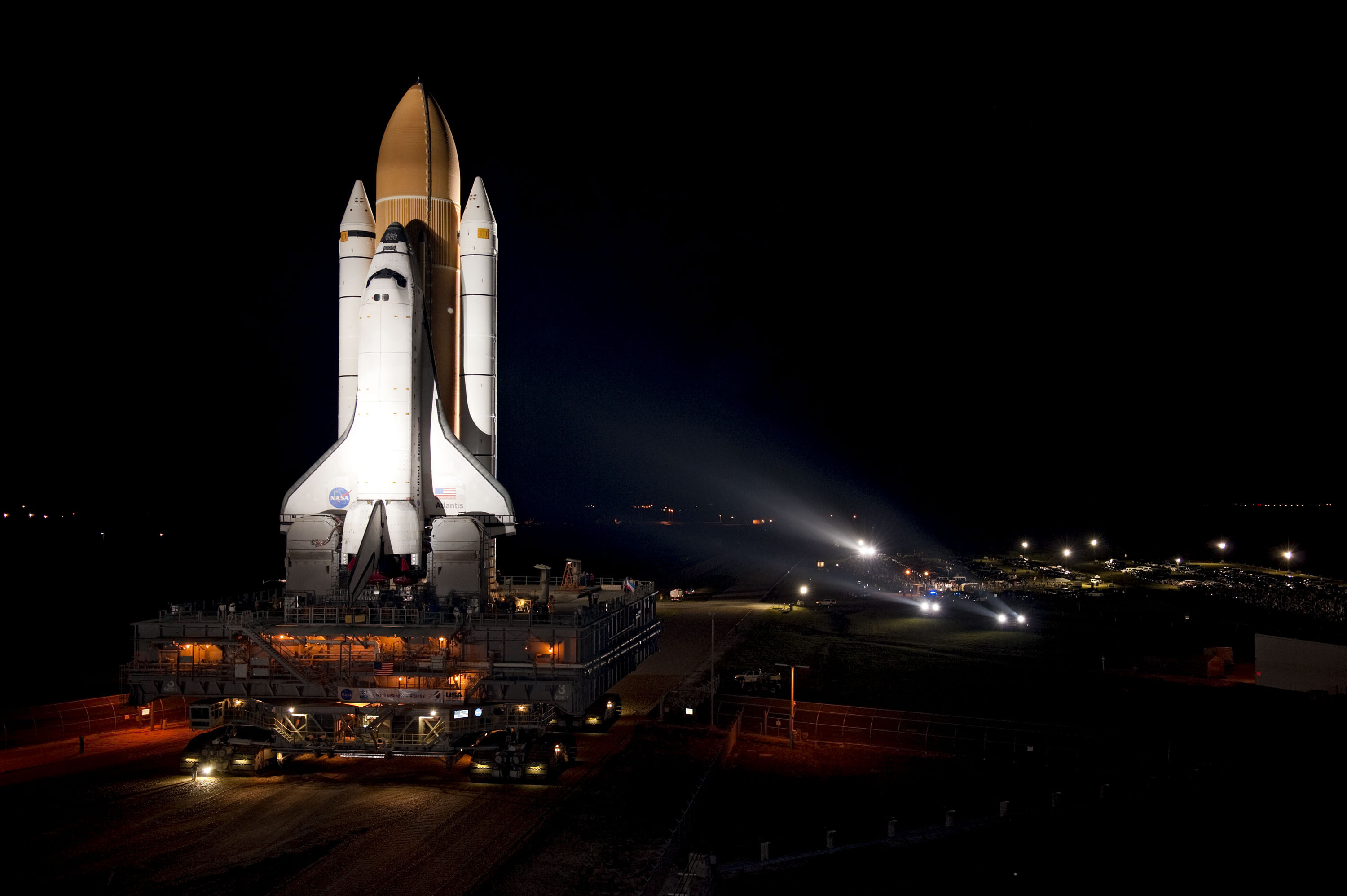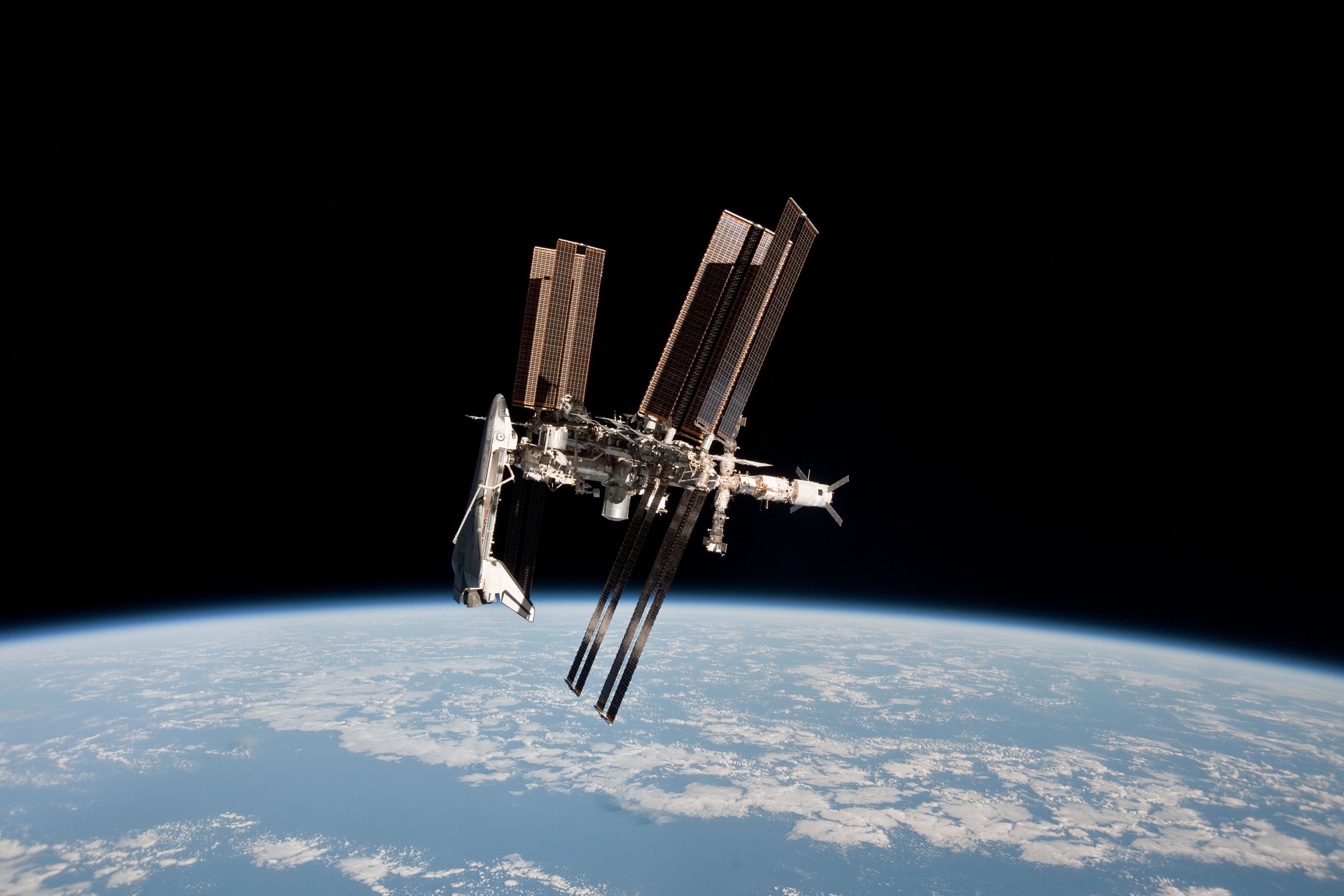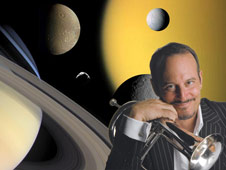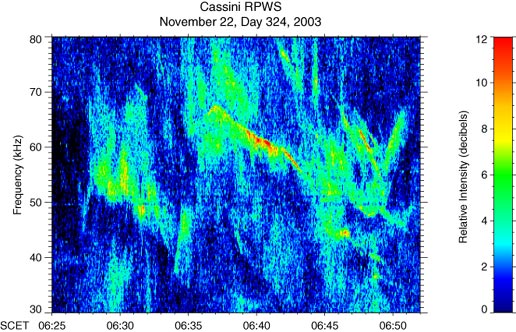Astronaut's share their experiences of living in space!
Read MoreSpace Transportation System (STS-1 / STS-135)
 I'm posting two little audio pieces to mark the end of NASAs space shuttle program which will (with any luck) enter its final mission today with the launch of Atlantis (STS-135) in a few hours.
I'm posting two little audio pieces to mark the end of NASAs space shuttle program which will (with any luck) enter its final mission today with the launch of Atlantis (STS-135) in a few hours.
The first was produced for the latest Imperial College I,Science podcast and features science writer and producer Piers Bizony speaking on the history of the space shuttle program at a Super/Collider event in May.
[soundcloud width="100%" height="81" params="" url="http://api.soundcloud.com/tracks/18609588"]
The Second is a short piece extracted from the first, imagining what it might sound like to be inside the shuttle during take-off. The radio chatter you hear comes from Columbia (STS-1), the very first shuttle launch which blasted off over 30 years ago on 12th April 1981. The eventual winding down towards the end symbolises the ending of the project's 30 year run.
[soundcloud width="100%" height="81" params="" url="http://api.soundcloud.com/tracks/18609682"]
The BBC has produced an excellent interactive history of the space shuttle program here and a friend from my course has also written an excellent article on the future of manned spaced flight here
Portrait of a legacy
I mentioned in a previous post that no space shuttle has ever been fully photographed whilst docked with the International Space Station. However NASA has released today landmark portraits of Endeavour and the ISS taken by Italian astronaut Paolo Nespoli on the 23rd of May whilst returning to Earth in a Russian Soyuz spacecraft.

This image was made possible by rotating the returning space craft 130 degrees so that Nespoli could take photos and video footage at a distance of about 600m from the ISS. It's amazing to see the relative size of the space shuttle in comparison to the space station and I must admit, I didn't realise how big it was! This photo I'm sure will come to represent the lasting legacy of NASAs space shuttle programme and will no doubt be one the most remembered space images of recent times.
You can view more of the images here and additional video footage will be released once it has been processed by NASA.
I'd also recommend having a look at some of Nespoli's other photos on his flickr account, which hosts a beautiful and diverse collection of shots.
Endeavour: An Ending (Ascent)
 Earlier today, the US Space Shuttle Endeavour launched successfully on its final mission - it is now currently en route to the International Space Station where it will be delivering the $2bn Alpha Magnetic Spectrometer. It will also be carrying a bunch of baby squid.
Earlier today, the US Space Shuttle Endeavour launched successfully on its final mission - it is now currently en route to the International Space Station where it will be delivering the $2bn Alpha Magnetic Spectrometer. It will also be carrying a bunch of baby squid.
After 30 years of the US Space Shuttle programme, the Americans will have to rely on the Russians to ferry their astronauts to and from the ISS. Atlantis will be the final shuttle to launch in the programme - expected sometime in July.
Interestingly NASA has never been able to obtain an 'all inclusive' photograph of the ISS docked with one of its shuttles. NASA had hoped that the Russians would perform a flyabout of the station in one of their Soyuz modules in order to obtain historical images of the station docked with Endeavour. However these plans were later rejected amidst safety concerns regarding the re-docking of the module to the station. Unfortunately for NASA, there will only be one more chance to document the shuttle's legacy; after the next and final mission the US shuttles will be placed into retirement permanently - never to feel the cold emptiness of space again.
Here's a webcast produced by NASA which sums up Endeavour's legacy perfectly (if a little cheasily):
http://vimeo.com/23221452
Super Collider also put on a charming retirement party for Endeavour tonight at the Bookclub in Shoreditch; speakers included photographer David Ryle and author Piers Bizony - I recorded the event and hope to be podcasting it soon - lets wish Endeavour and its crew a safe trip!
-Ed
Playing in the Key of Science
An Interview With Jeff Oster
After discovering the LHC sound project last year I've been on the look out for artists who have taken these sounds and used them to make music. So recently I was very excited when I came across a track called "Particles of God" because not only did it feature these bizarre and abstract sounds but it also sounded awesome!

The man behind the track is Jeff Oster, an American trumpet/flugelhorn player whose work frequently crosses over into electronic and ambient terrain. After hearing this track I delved deeper and found that this was not the first piece Jeff had created using audio samples from scientific sources. On another track entitled “Saturn Calling” he had sampled the eerie sounds of Saturn’s auroras (as captured by the NASA Cassini spacecraft) and it won him the ‘Best New Age Song’ at the 2008 Independent Music Awards.
I decided to get in touch with Jeff to find out a little bit more about how these cosmological and subatomic soundscapes had been influencing his work...
What was the inspiration behind these tracks? (Saturn Calling & Particles of God)
"I have always been interested in the cosmos, space exploration and mankind's need to reach beyond this world. From watching the mars rovers landing on mars via NASA TV, or the space shuttle launches, even back to Apollo and the moon missions, I have always been amazed at what these scientists have accomplished.
I am always searching for new sounds as i create my music. For "Saturn Calling", I was working on the music for a song, and had been watching the Cassini mission, and its amazing pictures of Saturn and its moons. The name of the song at that point was "Sounds of Saturn", and I just typed that phrase into Google. Lo and behold, up came the recording of the auroras of Saturn, and I incorporated them into the song.

One of the best things that has come from that music has been the way NASA and JPL [Jet Propulsion Laboratory] have embraced it - they currently host a feature on the song on the NASA and JPL websites, and I was invited to perform the song at the Cassini "end of prime" celebration at JPL in 2009, for the scientists that worked to make that mission a success. It was quite moving, to be able to stand in front of these amazing scientists who make the seemingly impossible a reality.
The inspiration for 'Particles of God" came from an article I was reading about the Large Hadron Collider, and of the way they are trying to capture the decay of the subatomic particles in sound. Since they can’t take a picture of these events (no camera can shoot that fast). They had posted some of these sounds, and I was inspired to choose a few of them and incorporate them into a new song, to which I added some beats and my trumpet using Apple's Garageband program.
As it turned out, the scientists involved with these sounds (found here) were open to hearing music made from these sounds, so that’s how it came into the world. You gotta love the www...."
How did the sounds influence the way in which you composed the tracks?
"The way I create my songs is very much the way a painter paints a picture. Sounds are the colors on the palette, and I spend a lot of time building the bed tracks, mixing sound together and feeling which fit together best. In the case of "Saturn Calling", I had a lot of the track already created, and the "wind" sound that the auroras made was a wonderful addition to the already created track.
That track was inspired by the Cassini program, and it was a lovely accident that these sounds added so much to the song. The fact that NASA and JPL took such a keen interest in the music because of those sounds was just the icing on the cake.
"Particles of God" was a bit more intentional - I chose the sounds I thought would work well in a song from the various sounds they have posted, and then built the music around them. These sounds actually have tone to them, so that drove the choice of instrumentation and then I added the beats, and of course the horn part. I usually create the horn part last, after the bed track has been established."
When you heard the sounds of the Large Hadron Collider what went through your mind – how did they make you feel?
"The concept of the work is brilliant. It’s almost the opposite of reaching out into the universe in search of the unknown - it’s reaching in with the same goal - discovery of the unknown (or the search for what we think can be known)
It is amazing that sound can be used in an attempt to "see" these particles. For me, sound has always represented the embodiment of our inner selves, and it’s no accident that sound will be the tool to represent the smallest most fundamental particles of matter.
The feeling around the sounds is always a subjective thing - what's beautiful to me might not be so for someone else. When I create music, first and foremost I please myself. If I love it, then that’s all that matters. The world will come to its own conclusion!"

Writing a song inspired by particle physics is slightly different to say writing a piece inspired by love or a romantic relationship – do you think a track like “Particles of God” can still have a similar emotive impact on the listener?
"I think that there’s a "coolness factor" in this song, partially because it actually includes these sounds. Songs resonate emotionally with the listener for various reasons, and in this case, the basics of song structure still need to be there. A cool beat, some kind of melody, a certain overall experience of the music as a song has to be there, some familiarity. Just the random collection of the sounds wouldn’t have the same level of impact on the listener in my opinion."
Do you think science can be emotive or invoke emotion in others? – Should scientists be encouraged to share their passion with non-scientists / members of the public?
"Scientists need to know how important their work is, and the impact that it has on the layman. I was a science major in school before I turned to music, and I spent many hours in the lab, taking notes, running experiments, creating research papers and helping with presentations of the findings. It is very meticulous work, and it is very easy to get lost in the work itself.
One of the most moving aspects of my performance at JPL was when I was able to speak to the scientists assembled there. I told them that the impact of their work was massive, the inspiration for some little kid that experiences the results of their very technical work (it is rocket science after all) is an emotional one, not cerebral.
Every scientist needs to remember that there is a real world emotional impact in what they are doing - that science reveals deep truths that resonate in all of us. It is noble work"
Do you think music and art are an effective way of sharing some of the excitement and wonder in science to an audience who might otherwise not be interested?
"I think that it is the bridge between the brain and the soul."
Do you think it’s beneficial for scientists to work with artists; or do you think they should be left to get on with their work?
"It takes a special scientist, and a special artist, to bridge the gap between those worlds. It is very easy to get lost in the specifics of each environment, and they sometimes seem mutually exclusive.
And yet, both are involved in creating something out of nothing, aren’t they?
Music is "captured", and turned into song. Science takes a hypothesis, and endeavours to prove it, for all of us to taste, feel, see, hear, touch. They both make the unreal real, and that commonality can only lead to greater knowledge and understanding.
That’s what we all want, isn’t it..."
If you could pick one sound which represented something in the scientific world that has inspired or interested you what would it be and why?
"When the SETI project picks up the sound of another world, that will truly be inspirational. I tend to be inspired by the sounds in the world - water, animal sounds, a child laughing. And of course, the sound of a well played horn :)
The scientific world is really the exploration of the entire world, and beyond. And what we discover will forever be inspirational to me.
Onward!!!"
--
Jeff's is currently putting the finishing touches on his latest album 'Surrender' which will be released later this year - check out his website for more information!
You can check out 'Saturn Calling' here and I highly recommend listening to the original NASA recordings here.
Not bad for an old man... (Apollo 14)
Continuing the Apollo 14 coverage - I was inspired to create a short radio piece on the mission which was broadcast on our 'Science @ 1' show earlier today. Check it out: [soundcloud width="100%" height="81" params="" url="http://api.soundcloud.com/tracks/13521655"]
[Update 03/05/11]
This segment was included on Short Science_89
[youtube=http://www.youtube.com/watch?v=IhXsjENGrk0&feature=related]
"It looks like you’re about on the bottom step... and on the surface."
"Not bad for an old man."
- Mission Control referring to Alan Shepard as he first stepped out onto the moon's surface. At the age of 47, Shepard was the oldest man to ever walk on the moon.
14
 I went to a very interesting night (run by Super Collider) on Monday evening which celebrated the 40th anniversary of the Apollo 14 lunar mission with a talk from Dr Christopher Riley – a broadcaster and expert on all things Apollo. Dr Riley also launched his new video installation entitled ‘Cone Crater’ - which I believe is showing throughout February at the Book Club in Shoreditch.
I went to a very interesting night (run by Super Collider) on Monday evening which celebrated the 40th anniversary of the Apollo 14 lunar mission with a talk from Dr Christopher Riley – a broadcaster and expert on all things Apollo. Dr Riley also launched his new video installation entitled ‘Cone Crater’ - which I believe is showing throughout February at the Book Club in Shoreditch.
I must admit I knew very little about the story of Apollo 14, which turns out to be pretty interesting so I'll fill you in on some of the details...
Apollo 14 was the eighth manned mission in the Apollo program and the third to take men to the moon. The nine day mission took Commander Alan Shepard, Command Module Pilot Stuart Roosa and Lunar Module Pilot Edgar Mitchell to the moon after taking off from the Kennedy Space Centre on January 31st, 1971. Five days later Shepard and Mitchell landed on the moon in their Lunar Module whilst Roosa remained alone in orbit, aboard the Command Module.
The lunar landing was slightly stressful...
1) Firstly during the descent the Lunar Module computer went a bit squiff doo and started to receive an ABORT signal, which nearly initiated an auto-abort of the landing. This would have separated the ascent component of the Lunar Module from the descent component taking the crew back into orbit and thus cancelling a very expensive trip to the moon (not ideal). This was only corrected at the last minute, with Mitchell having to manually persuade the computer (inputting a software patch) to ignore the erroneous signal.
2) As if that wasn't enough, the Lunar Module radar altimeter (I definitely know what this is) failed to lock onto the moons surface, which would usually be pretty hard to miss – this was determined to be a consequence of the earlier software updates (was Microsoft involved?). To remedy this, the crew basically did what you might have done when your computer breaks - they unplugged it; then plugged it back in; only it actually worked.
During their stay on the moon (clocking in at about 33 hours) Shepard and Mitchell went out on two moon walks, the second of which they got very lost on. They attempted to navigate to the rim of a 300m wide crater but instead spent most of the time not actually finding it, so in the end they had to turn back - it turns out they got within 3om of it! In addition to this they also found time to fit in a spot of golf and with a make shift six-iron, Shepard managed to single-handedly (the suits were pretty cumbersome) dispatch two golf balls into the moon’s horizon.
The crew returned to Earth safely, dropping down in the Pacific Ocean on February 9th. During the mission Roosa had brought with him several hundred seeds which on return were planted as commemorative ‘moon trees’ across America. Apollo 14 also clocked up the longest distance traversed by foot on the lunar surface and was the first to utilise colour TV on the moon.
I left the talk in a state of wonder and with a sense of awe at the achievements of the Apollo missions - we'd put men on the moon (and filmed it!) before an age of portable computers, mobile phones and digital cameras. However, I couldn't help but feel slightly dejected by the current state of space exploration, especially with the planned retirement of NASAs shuttle program later this year. I wonder whether I will ever see images beamed back of someone walking on the surface of another world - sadly I very much doubt it.
I'll finish this post with one of my favourite videos - a live performance of Brian Eno's Apollo music (which was created specifically for the documentary 'For All Mankind' - check it out!) this, if anything is enough to keep me wishing for a future in space.
[vimeo http://vimeo.com/13914151]
-Ed




